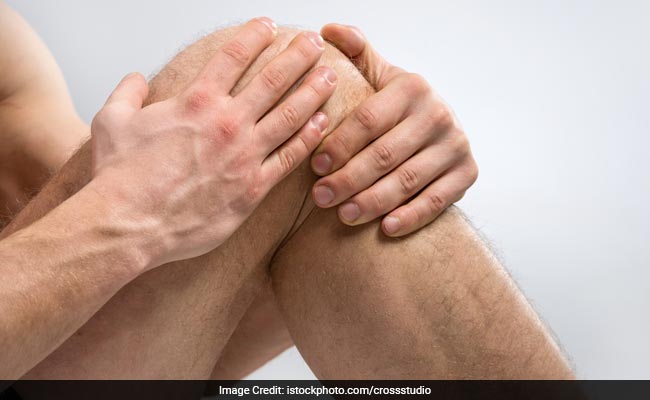Drinking baking soda daily may help reduce the destructive inflammation of autoimmune diseases like rheumatoid arthritis, say scientists

In rheumatoid arthritis, the immune system attacks healthy cells by mistake
HIGHLIGHTS
- Drinking baking soda may help reduce inflammation rheumatoid arthritis
- In autoimmune diseases, the immune system attacks healthy cells
- Drinking baking soda is a trigger for the stomach to make more acid
Drinking baking soda daily may help reduce the destructive inflammation of autoimmune diseases like rheumatoid arthritis, say scientists. While the immune system normally protects us from disease and infection, in someone who has an autoimmune disease the immune system attacks healthy cells in the body by mistake. Drinking baking soda, or sodium bicarbonate, tells the spleen -- which is part of the immune system -- to go easy on the immune response, the study said.
"Certainly drinking bicarbonate affects the spleen and we think it's through the mesothelial cells," said study co-author Paul O'Connor from Augusta University in Georgia, US.
The findings, published in the Journal of Immunology, showed that when rats or healthy people drink a solution of baking soda, or sodium bicarbonate, it becomes a trigger for the stomach to make more acid to digest the next meal.
And for the mesothelial cells sitting on the spleen, it tells that there is no need to mount a protective immune response.
"It's most likely a hamburger not a bacterial infection," is basically the message, O'Connor said.
In the spleen, as well as the blood and kidneys, the researchers found after drinking water with baking soda for two weeks, the population of immune cells called macrophages, shifted from primarily those that promote inflammation, called M1, to those that reduce it, called M2.
"The shift from inflammatory to an anti-inflammatory profile is happening everywhere," O'Connor said. "We saw it in the kidneys, we saw it in the spleen, now we see it in the peripheral blood."
The shifting landscape is likely due to increased conversion of some of the proinflammatory cells to anti-inflammatory ones coupled with actual production of more anti-inflammatory macrophages, he added.
The scientists also saw a shift in other immune cell types, like more regulatory T cells, which generally drive down the immune response and help keep the immune system from attacking our own tissues.
That anti-inflammatory shift was sustained for at least four hours in humans and three days in rats, the study said.
"It's potentially a really safe way to treat inflammatory disease," O'Connor said.
(This story has not been edited by NDTV staff and is auto-generated from a syndicated feed.)
DoctorNDTV is the one stop site for all your health needs providing the most credible health information, health news and tips with expert advice on healthy living, diet plans, informative videos etc. You can get the most relevant and accurate info you need about health problems like diabetes, cancer, pregnancy, HIV and AIDS, weight loss and many other lifestyle diseases. We have a panel of over 350 experts who help us develop content by giving their valuable inputs and bringing to us the latest in the world of healthcare.














